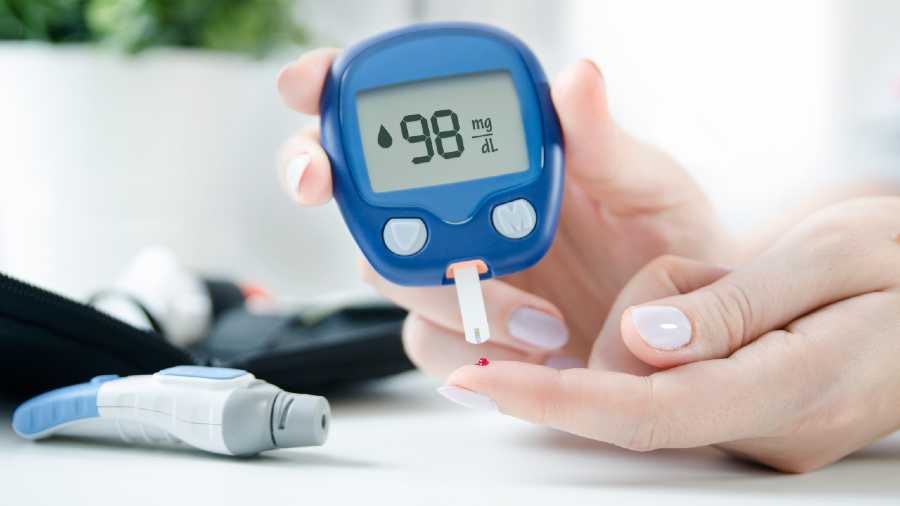November 14 was World Diabetes Day. On that day, we tried to remember the 63 million adults diagnosed with diabetes and the 230 million who do not know they have the disease. Almost 73 million diabetics live in India. A total of 10-14 per cent of the urban and 5-7 per cent of the rural populations are affected.
India is the diabetic capital of the world. A similar percentage of ethnic Indians settled abroad also suffer from the disease. This is so because the majority of Indians, even those with normal weight, have a high degree of insulin resistance. The mitochondria in the cells, which are responsible for converting food into energy, do not function efficiently. This leads to high sugar values.
Many remain in denial even once diabetes is diagnosed. Advised by well-meaning people, they decide that a controlled diet is not really needed, only refined sugar qualifies as sugar and swallowing leaves, herbs and bitter vegetables will cure them.
Uncontrolled diabetes causes death — from stroke, heart attack and kidney failure — due to the side effects of elevated blood sugar levels. Complications such as blindness and non-healing ulcers can also occur.
Everyone should be tested for diabetes after the age of 45 years. Prior to that, screening tests are essential for the symptomatic individuals.
The HBA1c or glycosylated haemoglobin test does not require overnight fasting. A value below 5.7 is normal; 5.7-6.4 is prediabetes; 6.5 or more, or a random test value of 200mg/dL or higher, or a fasting sugar of more than 100mg/ dL is regarded as diabetes.
Once the blood sugar values are found to be high, tests have to be repeated to see if they come down to normal after a trial of diet and exercise. Both these are the mainstays of diabetes treatment.
There is no one-size-fits-all diabetic diet. Basically, one should have three main meals and two healthy snacks through the day. Mealtimes should be regular and fixed. Total calorie intake should be 1,500-1,700 — depending on your level of activity. Second helpings should be avoided. Cooking oil should be reduced to half a litre per person per day. Diet can be adjusted according to personal preferences and requirements by consulting a dietician.
Regular exercise helps increase heart rate, works muscles, utilises calories and reduces blood sugar levels. It is important to use a combination of exercises. Just half-an-hour’s “gentle walk” a day will not do the trick, but that is better than nothing.
Aerobic activity — walking, jogging, swimming or cycling — for at least 40 minutes a day is required six days a week. During prolonged periods of inactivity through the day, get up every one hour for a few minutes to keep the muscles moving.
Training with light weights builds muscles and helps in controlling blood sugar too. Dumbbells need not be purchased. A one-litre bottle of water weighs a kilo. Thirty repetitions a day are usually sufficient.
Blood sugar can be inexpensively monitored by using home sugar checking devices.
A record should be maintained and shown to the doctor. If control is unsatisfactory, the lowest possible dose of a single medication is started and increased to the maximum dose if that doesn’t help. If the sugar is still not controlled, a second or third medicine is added. If nothing works, then insulin injections are required.
Some medicines have side effects such as Vitamin B12 deficiency, nausea and diarrhoea. They are peculiar to the medicine and the individual. In that case, the medicine needs to be changed. Diabetics also need to have their blood pressure, eyes, kidney functions and ECG reports monitored regularly.
The writer is a paediatrician with a family practice at Vellore and the author of Staying Healthy in Modern India. If you have any questions on health issues please write to yourhealthgm@yahoo.co.in










